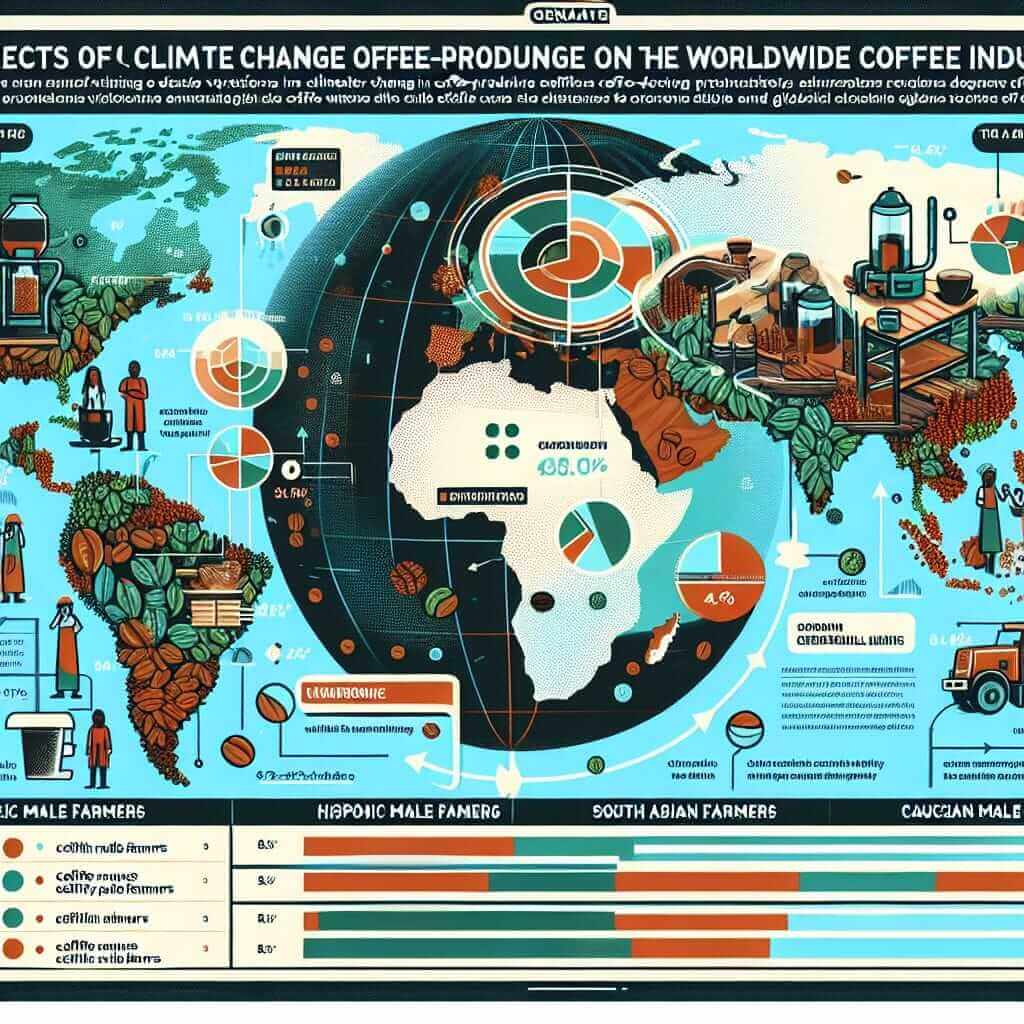The IELTS Reading section requires candidates to excel in interpreting and analyzing diverse topics. One such contemporary topic is “How climate change is influencing the global coffee industry.” Given the increasing global relevance of climate change, this is likely to be a topic of interest in the IELTS Reading passages.

This article will provide an IELTS Reading practice passage, questions, and answers on this topic, and will include an analysis of vocabulary and grammar points to help you prepare efficiently for the exam.
Reading Passage and Questions
Reading Passage: How Climate Change is Influencing the Global Coffee Industry
Coffee is one of the most traded commodities in the world, enjoyed by millions every day. However, the effects of climate change are posing significant threats to coffee production. According to recent studies, rising temperatures and fluctuating weather patterns have begun to adversely affect coffee-growing regions.
In Central America, coffee farmers have noticed that higher temperatures are accelerating the maturation process of coffee cherries, leading to lower quality beans. In Ethiopia, a country synonymous with coffee, unpredictable rainfall and prolonged droughts have drastically reduced crop yields. Coffee leaf rust, a disease exacerbated by climatic variations, has spread rapidly, decimating plantations in Africa and Latin America.
Moreover, suitable land for coffee cultivation is expected to shrink by up to 50% by 2050, according to a report by the International Center for Tropical Agriculture. This is particularly alarming for countries whose economies heavily rely on coffee exports. Farmers are being forced to adapt by moving to higher altitudes or diversifying their crops, though these solutions are not always feasible or sustainable in the long term.
Efforts to combat these issues include the development of climate-resilient coffee varieties and implementing agroforestry practices. Such initiatives offer hope, yet will require substantial investment and global cooperation.
Questions
Multiple Choice
-
What is one of the main effects of climate change on coffee production in Central America?
A. Increased bean quality
B. Accelerated cherry maturation
C. Reduced rainfall
D. Expansion of plantation areas -
Which country has experienced significant reductions in coffee crop yields due to climate change?
A. Thailand
B. Brazil
C. Ethiopia
D. India
True/False/Not Given
- The maturation process of coffee cherries has slowed down due to higher temperatures in Central America.
- Ethiopia’s coffee industry has not been affected by unpredictable rainfall.
Matching Information
- Match the statement with the correct data from the passage:
- Coffee leaf rust is a disease that has spread rapidly due to climatic variations.
- Suitable land for coffee cultivation is expected to shrink by up to 50% by 2050.
Summary Completion
Complete the summary using words from the box below.
[ suitable, regions, yields, droughts, cooperative ]
Climate change has led to increased temperatures and unpredictable weather patterns, affecting coffee-growing regions globally. These changes have resulted in lower quality beans and reduced crop (6). In some parts of Africa, prolonged (7) have devastated coffee plantations. Moving to higher altitudes and developing climate-resilient varieties are among the adaptive measures undertaken by farmers to overcome these challenges.
Short-answer Questions
- By what percentage is suitable land for coffee cultivation expected to reduce by 2050?
- What disease has spread rapidly in Africa and Latin America, affecting coffee plantations?
Answer Keys
Multiple Choice
- B. Accelerated cherry maturation
- C. Ethiopia
True/False/Not Given
- False
- False
Matching Information
- Coffee leaf rust is a disease that has spread rapidly due to climatic variations.
- Suitable land for coffee cultivation is expected to shrink by up to 50% by 2050.
Summary Completion
- yields
- droughts
Short-answer Questions
- 50%
- Coffee leaf rust
Lessons Learned
Common Mistakes
- Misinterpreting the information provided in the passage.
- Confusing similar terms or data points, such as temperature changes and rainfall patterns.
- Overlooking detail-specific questions that require close reading.
Vocabulary
- Adversely (adverb): in a way that prevents success or development; harmfully.
- Maturation (noun): the process of becoming mature.
- Fluctuating (adjective): rising and falling irregularly in number or amount.
- Prolonged (adjective): continuing for a long time or longer than usual.
- Decimate (verb): to destroy a large percentage or part of.
Grammar Points
- Present Perfect Tense: “Farmers have noticed.”
- Passive Voice: “Land for coffee cultivation is expected to shrink.”
- Conditional Sentences: “If climate change continues, coffee production will decline.”
Conclusion
Effective reading practice involves understanding complex topics, grasping key points, and answering various question types accurately. Focusing on climate change’s effect on the coffee industry provides a rich context for improvement. Consistently practice, analyze mistakes, and expand your vocabulary to achieve a high score in the IELTS Reading section.